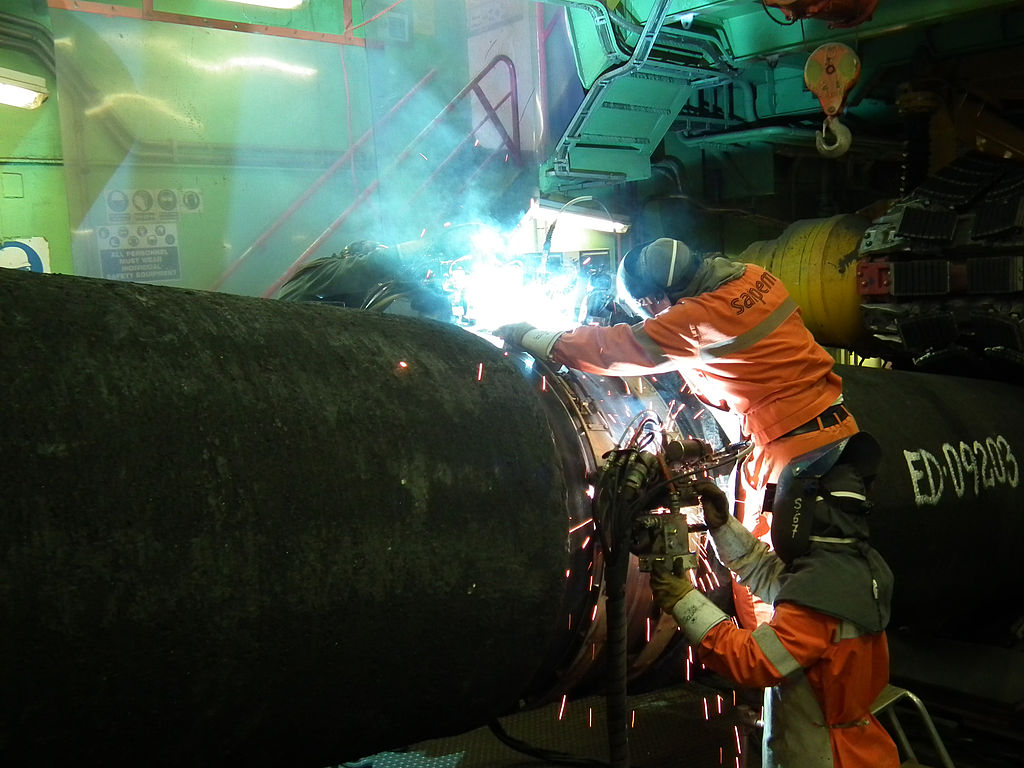Alexander Demchenko
KYIV — The title itself is catchy enough: "To be open despite the past." True, it had nothing to do with the War or post-War years. The article, printed in the German newspaper Die Zeit is rather a call to Germans to forget about the Ukrainian issue and to engage as soon as possible in real, profitable policies, such as the launch of Nord Stream.
Russian President Vladimir Putin is trying to convince the Germans to be open-minded, regardless of the past. But the past he urges Germans to forget has nothing to do with Nazism. Here the Russian president understands that Germans are still bound by the politics of memory, and are unlikely to allow themselves to change history any time soon.
Putin is also aware that the thought viruses propagated by Kremlin propaganda are effective enough to bind the Russian population together in a single aggressive impulse. What he wants the German people to forget about is another, not-so-distant and yet also unpleasant past: the war in Ukraine and the occupation of its territories.
In his Die Zeit article, the Russian president once again recalled the so-called coup d'etat in Kyiv in 2014, saying that he considered Ukraine's breakaway from Russia a tragedy, that there was no occupation of Crimea, but only a split in Ukraine that led to the separation of the peninsula. He recalled many of the old tropes of Kremlin propaganda. The same lines that he has been trying to introduce into the information space of Europe for eight years now.
One could say that [Putin's article] is an ode to Germany's ruling elite
Yet Putin's current article is not only aimed at the German and Russian masses, but more particularly at Germany's current political elite. The Russian leader is sending them a different message: an offer to pay off the Germans today in exchange for forgetting about Ukraine in the future.
"Russia stands for the restoration of a comprehensive partnership with Europe. We have many topics of mutual interest. These are security and strategic stability, health and education, digitalization, energy, culture, science, and technology, solving climate and environmental problems," Putin writes.
One could say that the text is an ode to Germany's ruling elite, and especially to the Social Democrats, who were able to include a clause in the German government's coalition agreement committing to complete the Nord Stream gas pipeline. It is also noticeable that the Russian president is trying to influence the conservative part of the German electorate, which supports the ruling elite. He understands that Russia's economic projects in Europe can only succeed if the current political landscape in Germany remains intact.
"It was German entrepreneurs who pioneered cooperation with our country in the post-War years. In 1970, the USSR and Germany struck a deal of the century on long-term supplies of natural gas to Europe, laying the foundation for constructive interdependence and giving rise to many subsequent grand projects, including the Nord Stream gas pipeline," Putin writes.

Welders working on the Nord Stream gas pipeline — Photo: Bair175
Naturally, a large part of Putin's article was devoted specifically to Russian-European relations. It was a counterargument against the U.S., with the Russian president advocating for security-building without Washington, the freeing of NATO's expansion to the East, and further integration and cooperation in Europe.
In general, his speeches on further expansion of NATO to the East are not just a reaction to U.S. President Joe Biden's words regarding the possible integration of Ukraine into the alliance without Crimea and Donbas. It is a request to the German elite to guarantee, as in 2008, that Kyiv will not be able to move forward on the issue of rapprochement, or join the alliance.
Putin speaks of a deteriorating security system, of excessive tension, and mentions the risks of a new arms race. What is he suggesting: cooperation? Not if you can read between the lines. When he mentions the concept of a Greater Europe — from Lisbon to Vladivostok — he certainly remembers its founder. No, not General de Gaulle, but philosopher McKinder, who said that Russia is a European heartland, which should influence Europe and manage its geopolitical processes.
When the president of the Russian Federation calls on the German elite for unification, he recalls Willy Brandt's Ostpolitik, the course that the German chancellor chose to take in the 1970s to normalize relations between West Germany and East Germany, the Soviet Union and Poland. This was precisely what served to form Europe's single energy space when oil and gas transportation systems were built that linked the Western part of the continent with Soviet energy resources.
When Putin suggests cooperation, he means not a united Europe, but a Europe that depends on Russia.
"We are missing out on the enormous opportunities that cooperation gives us," he writes. "(It's) all the more important now that we are all facing common challenges: the pandemic and its dire socio-economic consequences."
When Putin suggests cooperation, he means not a united Europe, but a Europe that depends on Russia. This is the real point of his current article.
Vladislav Surkov, former deputy head of the Russian presidential administration, once said that Russia's main goal was to make Ukraine boring for the West. As Putin's current article showed, Russia's key goal is to make Europe actually forget about Ukraine.
Now it cannot be stated that the West has forgotten about Ukraine. Today's Europe, despite its economic ties, is to a certain extent afraid of further Russian aggression. It benefits from defending Ukraine for the sake of its security. However, this does not mean that Russia will stop trying to remove the Ukrainian issue from the European agenda. And this is why Kyiv needs to hurry up and figure out what its counter-strategy should be.
No comments:
Post a Comment